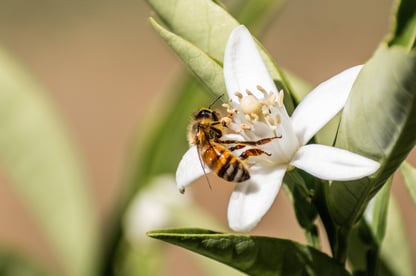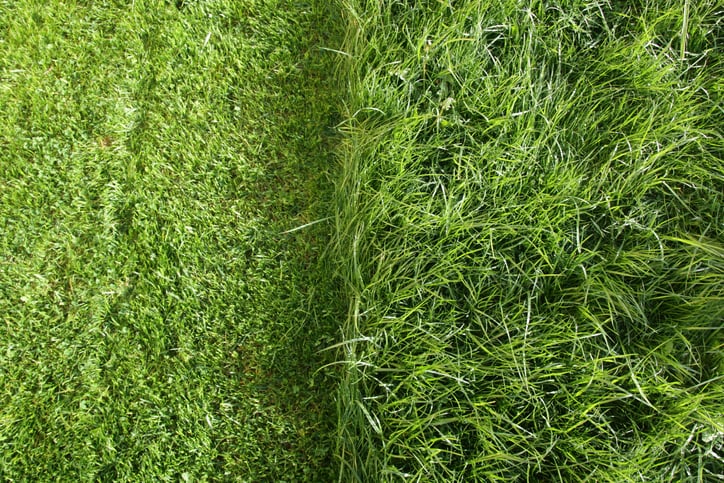If you’re the grass cutter in the family, you may not like this. The people who support the “No Mow May” movement want you to take the month off. They’re encouraging you to refrain from cutting your grass. It’s a month-long pause to benefit bees and other pollinators (like butterflies).
So, let’s take a look at No Mow May, how it started and what benefits you may see if you decided to take part. It can become an important part of your organic or natural lawn care regimen.
Where Did “No Mow May” Start?
No Mow May is a conservation drive made famous by a group called Plantlife. It’s an organization based in the United Kingdom, but the movement is also very popular in Canada and now gaining steam across the United States.
What About In North America?
People in Appleton, Wisconsin know all about No Mow May. The city is an affiliate of Bee City USA and became energized by the movement.
In 2020, Appleton’s City Council agreed to suspend their weed ordinance for the month of May so residents could take part, and researchers at Lawrence University took advantage. They studied the effects of No Mow May. Participating in No Mow May not only improved bee richness, but bee abundance was five times higher than frequently mowed greenspaces.
What's The Point?
The mow-free period allows more flowers to grow so pollinators can collect more nectar. Postponing your mowing session until June can help plants create enough nectar for up to 10 times more bees and other pollinators.
 Other studies are looking into how reducing the frequency of mowing throughout the growing season impacts bees. In fact, the USDA Forest Service conducted one of those experiments.
Other studies are looking into how reducing the frequency of mowing throughout the growing season impacts bees. In fact, the USDA Forest Service conducted one of those experiments.
Researchers wanted to know if cutting the grass more often influenced bee abundance and diversity. They mowed herbicide-free suburban lawns at different frequencies in Springfield, Massachusetts.
Breaking the mowers into three groups made it easier to track. One group cut the grass every week, another every other week, and a third group cut once every three weeks. Then researchers compared the results. They found that bee abundance increased when grass cutting decreased to every other week.
Should You Take Part?
Now, if you loathe long grass, this may not be for you. Or if the thought of more bees flying around your yard doesn’t appeal to you, you’ll probably pass.
But if you want to take a break from one part of your lawn care regimen to focus on some other things for a month, your interest may be piqued. Lawns require frequent mowing, raking, fertilizing, weeding, chemical treatment, and watering—sucking up time and money. Taking part in No Mow May will save you a little of both.
Or if you would like to see the flower count in your yard go up, you may consider it. If you’re not living next to a wildflower meadow and want to see a higher number of flowers in your neighborhood, mowing less frequently may help. Although to really make a difference you’d probably have to get some surrounding property owners to take part, too.
The bottom line is that No Mow May (or mowing less in general) is a matter of preference, but something to consider, especially if you’d like to implement an organic lawn care program.
Lush Lawn Can Help
Whether you decide to mow in May or not, one thing that won’t change is Lush Lawn’s commitment to keeping your lawn thriving. We offer 7 organic-based lawn applications with optional weed control and grub preventer.
If you’re interested in learning more about our organic lawn care programs, contact us today.
